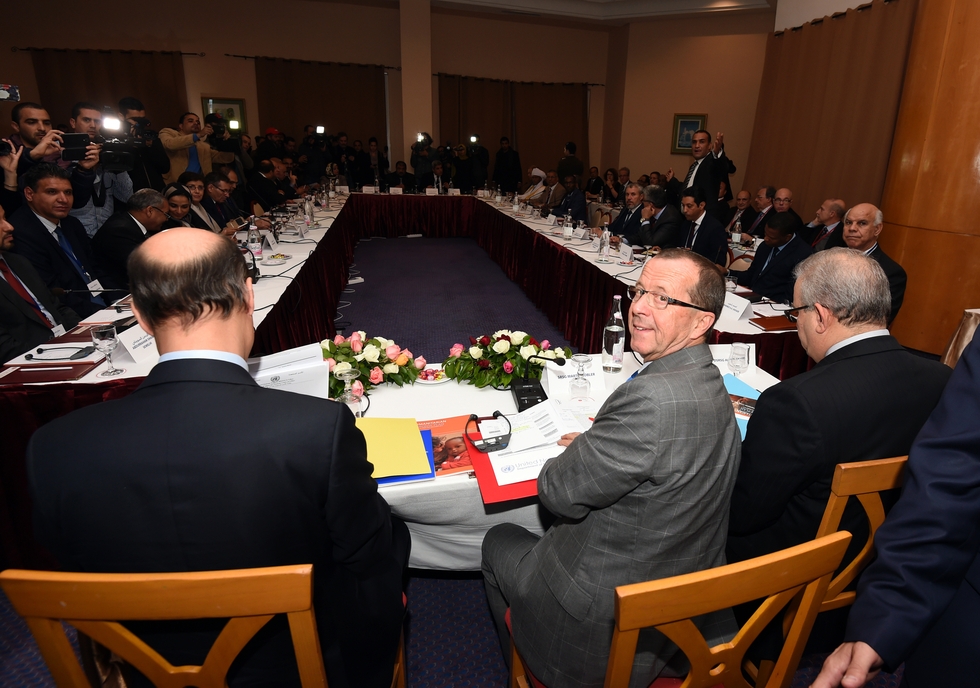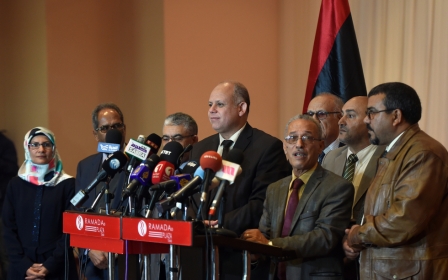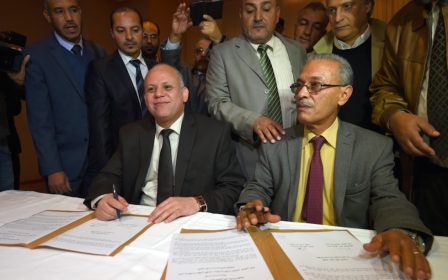Libya rivals pledge to sign UN peace accord next week

Libya's rival parliaments will sign a UN-sponsored agreement on forming a national unity government next week, delgates on both sides said on Friday, as world leaders pressed them to end chaos in the country.
"The political accord will be signed on 16 December," said Salah el-Makhzoum, a vice president of the Tripoli-based General National Congress, calling it a "happy day".
An official of the internationally recognised House of Representatives, Mohammed Choueib, said that "after lengthy efforts... we announce to our people that we have decided to move beyond this difficult period... and ask everyone to join us".
Libya descended into chaos following the 2011 overthrow and killing of long-time ruler Muammar Gaddafi.
The oil-rich country has had rival administrations since August 2014, when an Islamist-backed militia alliance overran Tripoli, forcing the recognised government to take refuge in the east.
The rival governments are now attempting to establish a single government of national unity.
Politicians will meet in the Italian capital Rome on Sunday in talks to be co-chaired by US Secretary of State John Kerry and his Italian counterpart Paolo Gentiloni.
Italy, a former colonial power in Libya, will attend the conference alongside other international representatives including Russia, the UK, China and France.
Friday’s agreement comes days after international actors blasted an attempt by members of the rival parliaments to reach what they called a “Libyan-Libyan” dialogue that short-circuited the UN-backed deal.
“No last minute attempt to derail the UN driven process will succeed,” said a statement signed by ambassadors from the US, UK, France, Germany, Spain and Italy.
The deal, described by local news site Libya Herald as a “wrecking” move,” was announced after leaked emails revealed that the former UN envoy to Libya, Bernardino Leon, had been working covertly with the UAE to back one side in the country’s civil war while ostensibly working as a mediator between the warring parties.
Middle East Eye propose une couverture et une analyse indépendantes et incomparables du Moyen-Orient, de l’Afrique du Nord et d’autres régions du monde. Pour en savoir plus sur la reprise de ce contenu et les frais qui s’appliquent, veuillez remplir ce formulaire [en anglais]. Pour en savoir plus sur MEE, cliquez ici [en anglais].




